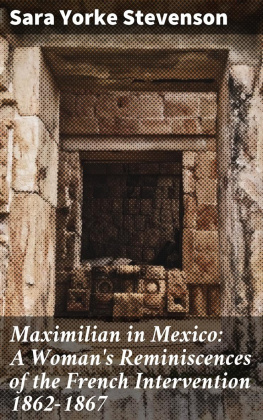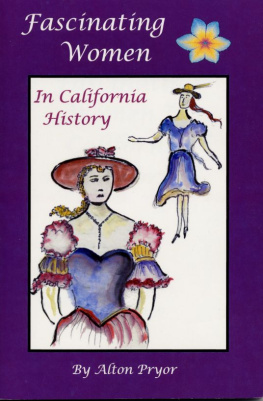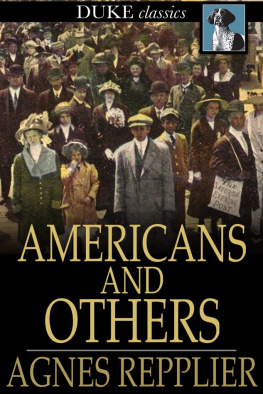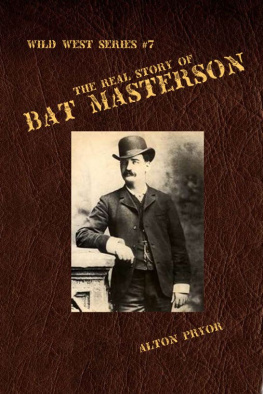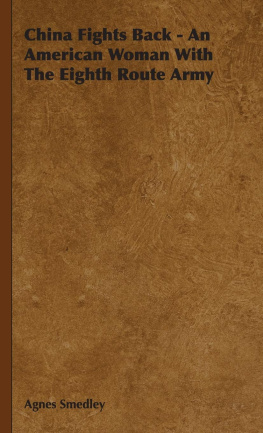Chapter I
Washington in the Fifties
The Washington that I knew in the fifties was not the Washington of Dickens, Mrs. Trollope, and Laurence Oliphant. When I knew the capital of our country, it was not "a howling wilderness of deserted streets running out into the country and ending nowhere, its population consisting chiefly of politicians and negroes"; nor were the streets overrun with pigs and infested with goats. I never saw these animals in the streets of Washington; but a story, told to illustrate the best way of disposing of the horns of a dilemma proves one goat at least to have had the freedom of the city. It seems that Henry Clay, overdue at the Senate Chamber, was once hurrying along Pennsylvania Avenue when he was attacked by a large goat. Mr. Clay seized his adversary by the horns. So far so good, but how about the next step? A crowd of sympathetic bootblacks and newsboys gathered around offering advice. "Let go, Mr. Clay, and run like blazes," shouted one; and Mr. Clay did let go and did run, his senatorial coat-tails flying like pennons behind him.
But this was before my day. I remember Washington only as a garden of delights, over which the spring trailed an early robe of green, thickly embroidered with gems of amethyst and ruby, pearl and sapphire. The crocuses, hyacinths, tulips, and snowdrops made haste to bloom before the snows had fairly melted. The trees donned their diaphanous veils of green earlier in the White House grounds, the lawn of the Smithsonian Institution, and the gentle slopes around the Capitol, than anywhere in less distinguished localities. To walk through these incense-laden grounds, to traverse the avenue of blossoming crab-apples, was pure pleasure. The shaded avenues were delightful long lanes, where one was sure to meet friends, and where no law of etiquette forbade a pause in the public street for a few words of kindly inquiry, or a bit of gossip, or the development of some plan for future meetings. If one's steps tended to the neighborhood of 7th and D streets, nothing was more probable than a meeting with one of Washington's most noted citizens, the superb mastiff of Mr. Gales, the veteran editor of the National Intelligencer, as the dog gravely bore in a large basket the mail for the office. No attendant was needed by this fine animal. He was fully competent to protect his master's private and official correspondence.
He had been taught to express stern disapprobation of Democrats; so if a pleasant walk with him was desired, it was expedient for members of that party to perjure themselves and at once announce: "I am an 'Old-Line Whig,' old man," and the dog's tail would wag a cordial welcome.
Omnibuses ran along Pennsylvania Avenue, for the convenience of Senators, Congressmen, and others on their way to the Capitol, but the saunter along the avenue was so charming that I always preferred it to the People's Line. There were few shops. But such shops! There was Galt's, where the silver, gems, and marbles were less attractive than the cultivated gentleman who sold them; Gautier's, the palace of sweets, with Mrs. Gautier in an arm-chair before her counter to tell you the precise social status of every one of her customers, and what is more, to put you in your own; Harper's, where the dainty, leisurely salesman treated his laces with respect, drawing up his cuffs lest they touch the ethereal beauties; and the little corner shop of stern Madame Delarue, who imported as many (and no more) hats and gloves as she was willing to sell as a favor to the ladies of the diplomatic and official circles, and whose dark-eyed daughter Lonide (named for her godmother, a Greek lady of rank) was susceptible of unreasoning friendships and could be coaxed to preserve certain treasures for humbler folk.
Lonide once awoke me in the middle of the night with a note bidding me "come tout de suite," for "Maman" was asleep, the boxes had arrived; and she and I could peep at the bonnets and choose the best one for myself. Thus it was that I once bore away a "divine creation" of point lace, crpe, and shaded asters before Madame had seen it. Otherwise it would have been reserved for Miss Harriet Lane or Mrs. Douglas. Madame had to know later; and Lonide was not much in evidence the rest of that season. At Madame Delarue's, if one was very gentil, very convenable, one might have the services of Franois, the one and only hair-dresser of note, who had adjusted coronets on noble heads, and who could (if he so minded) talk of them agreeably in Parisian French.
All these were little things; but do not pleasant trifles make the sum of pleasant hours? Washington was like a great village in those days of President Pierce and President Buchanan. To obtain the best of the few articles to be purchased was an achievement.
My own pride in the Federal City was such that my heart would swell within me at every glimpse of the Capitol: from the moment it rose like a white cloud above the smoke and mists, as I stood on the deck of the steamboat (having run up from my dinner to salute Mount Vernon), to the time when I was wont to watch from my window for the sunset, that I might catch the moment when a point on the unfinished dome glowed like a great blazing star after the sun had really gone down. No matter whether suns rose or set, there was the star of our country, the star of our hearts and hopes.
I acknowledge that Wisdom is much to be desired of her children, but nowhere is it promised that they will be the happier for gaining her. When my lot was cast in Washington, Wisdom had not taught me that the White House was less beautiful than a classic temple. To be sure, Dickens had called it "like an English club-house," that was bad enough, but Mark Twain had not yet dubbed it "a fine, large, white barn with wide handsome grounds around it." "The President lives there," says Washington Hawkins. "It is ugly enough outside, but that is nothing to what it is inside." To my uneducated eye the East Room with its ornate chandeliers, fluted pillars, and floriated carpet was an audience chamber fit for a king. A triumph of artistic perfection was the equestrian statue of the hero of New Orleans, now known to be out of all proportion, and condemned as "bad" and "very bad" by Wisdom's instructed children. Raising his hat, indeed! Why, any man in that position would be holding on to the mane with both hands to keep from sliding off. And as for the Capitol the sacred Capitol! From foundation to turret it was to my eye all that genius and patriotism could achieve. The splendid marbles at the entrance, the paintings, the bas-reliefs within the rotunda, these were things to boast of, to dream of. Not yet had arisen our irreverent humorist to warn us never to enter the dome of the Capitol, "because to get there you must pass through the great rotunda, and to do that you would have to see the marvellous historical paintings that hang there and the bas-reliefs, and what have you done that you should suffer this?"





